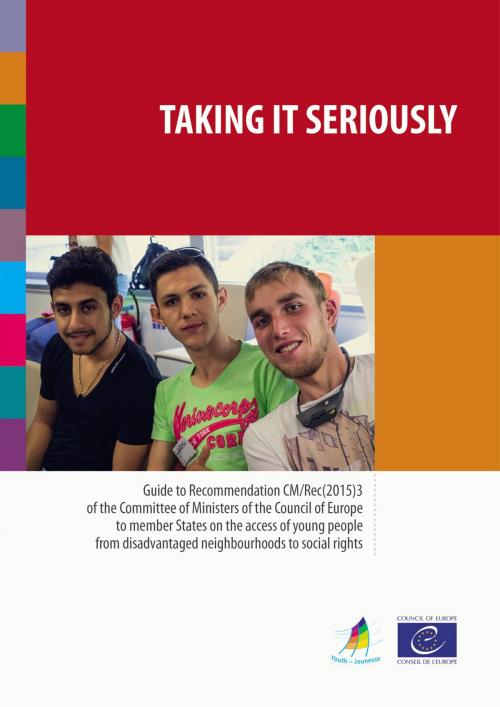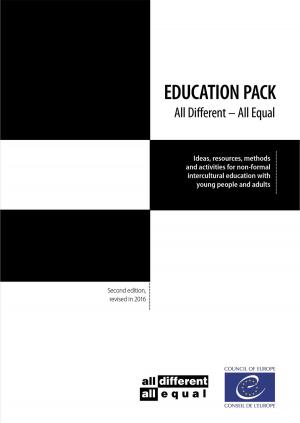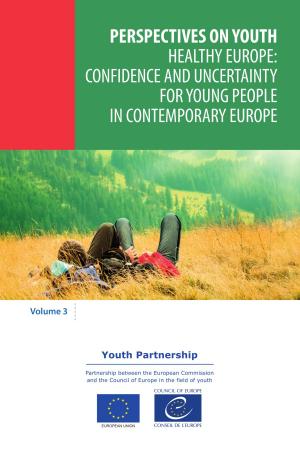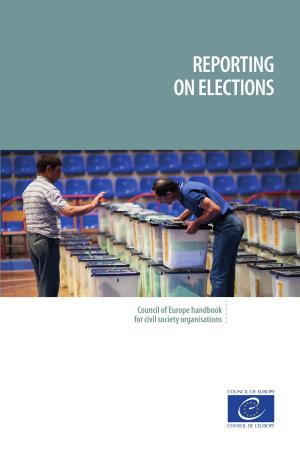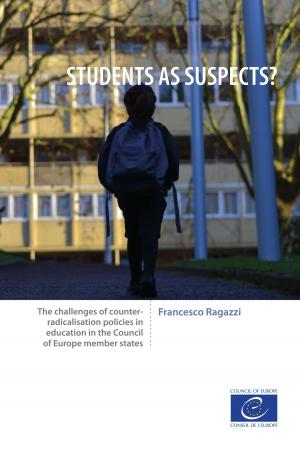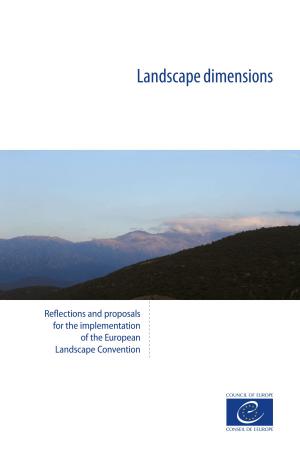Taking it seriously
Guide to Recommendation CM/Rec(2015)3 of the Committee of Ministers of the Council of Europe to member States on the access of young people from disadvantaged neighbourhoods to social rights
Nonfiction, Social & Cultural Studies, Social Science, Discrimination & Race Relations, Political Science| Author: | Kevin O'Kelly, John Muir, Mara Georgescu, Rui Gomes | ISBN: | 9789287184504 |
| Publisher: | Council of Europe | Publication: | October 7, 2016 |
| Imprint: | Council of Europe | Language: | English |
| Author: | Kevin O'Kelly, John Muir, Mara Georgescu, Rui Gomes |
| ISBN: | 9789287184504 |
| Publisher: | Council of Europe |
| Publication: | October 7, 2016 |
| Imprint: | Council of Europe |
| Language: | English |
Promoting young people's access to social rights as a means for their inclusion and participation in society! In and around many cities, social and economic imbalances have led to the development of disadvantaged neighbourhoods, where diversity is also accompanied by poverty and often marginalisation or exclusion. This is sometimes combined with different forms and levels of de facto social segregation, discrimination and violence. At times of economic and social crisis, feelings of powerlessness and anxiety about the future risk deepening local tensions and underlying conflicts. Young people are often at the centre of these tensions because they are more vulnerable and insecure, and because they are more directly affected by uncertainties regarding the development of their autonomy, as well as participation in society and contribution to its development. The Council of Europe has challenged itself to respond to these situations by adopting recommendations for its member states that encourage and support them in finding adequate policy responses to situations of exclusion, discrimination and violence affecting young people in disadvantaged neighbourhoods. In early 2015, the Committee of Ministers of the Council of Europe adopted a policy recommendation with proposals for policy measures to member states in order to promote access to social rights for young people. Proposals concern: – the provision of accessible, affordable public services; – overcoming segregation; – promoting the participation of young people; – combating discrimination; – recognition of youth work and non-formal education; – promoting gender-sensitive approaches to the elaboration of youth policies. This publication is an accompaniment to this recommendation, and aims to bring its content closer to policy makers, youth work practitioners, youth organisations and youth workers, and provide step-by-step information and guidance on the implementation of the recommendation. The publication also offers advice and examples of actions to take and policies to develop so that the social rights of young people are taken seriously by all the actors concerned by social inclusion and social cohesion.
Promoting young people's access to social rights as a means for their inclusion and participation in society! In and around many cities, social and economic imbalances have led to the development of disadvantaged neighbourhoods, where diversity is also accompanied by poverty and often marginalisation or exclusion. This is sometimes combined with different forms and levels of de facto social segregation, discrimination and violence. At times of economic and social crisis, feelings of powerlessness and anxiety about the future risk deepening local tensions and underlying conflicts. Young people are often at the centre of these tensions because they are more vulnerable and insecure, and because they are more directly affected by uncertainties regarding the development of their autonomy, as well as participation in society and contribution to its development. The Council of Europe has challenged itself to respond to these situations by adopting recommendations for its member states that encourage and support them in finding adequate policy responses to situations of exclusion, discrimination and violence affecting young people in disadvantaged neighbourhoods. In early 2015, the Committee of Ministers of the Council of Europe adopted a policy recommendation with proposals for policy measures to member states in order to promote access to social rights for young people. Proposals concern: – the provision of accessible, affordable public services; – overcoming segregation; – promoting the participation of young people; – combating discrimination; – recognition of youth work and non-formal education; – promoting gender-sensitive approaches to the elaboration of youth policies. This publication is an accompaniment to this recommendation, and aims to bring its content closer to policy makers, youth work practitioners, youth organisations and youth workers, and provide step-by-step information and guidance on the implementation of the recommendation. The publication also offers advice and examples of actions to take and policies to develop so that the social rights of young people are taken seriously by all the actors concerned by social inclusion and social cohesion.
